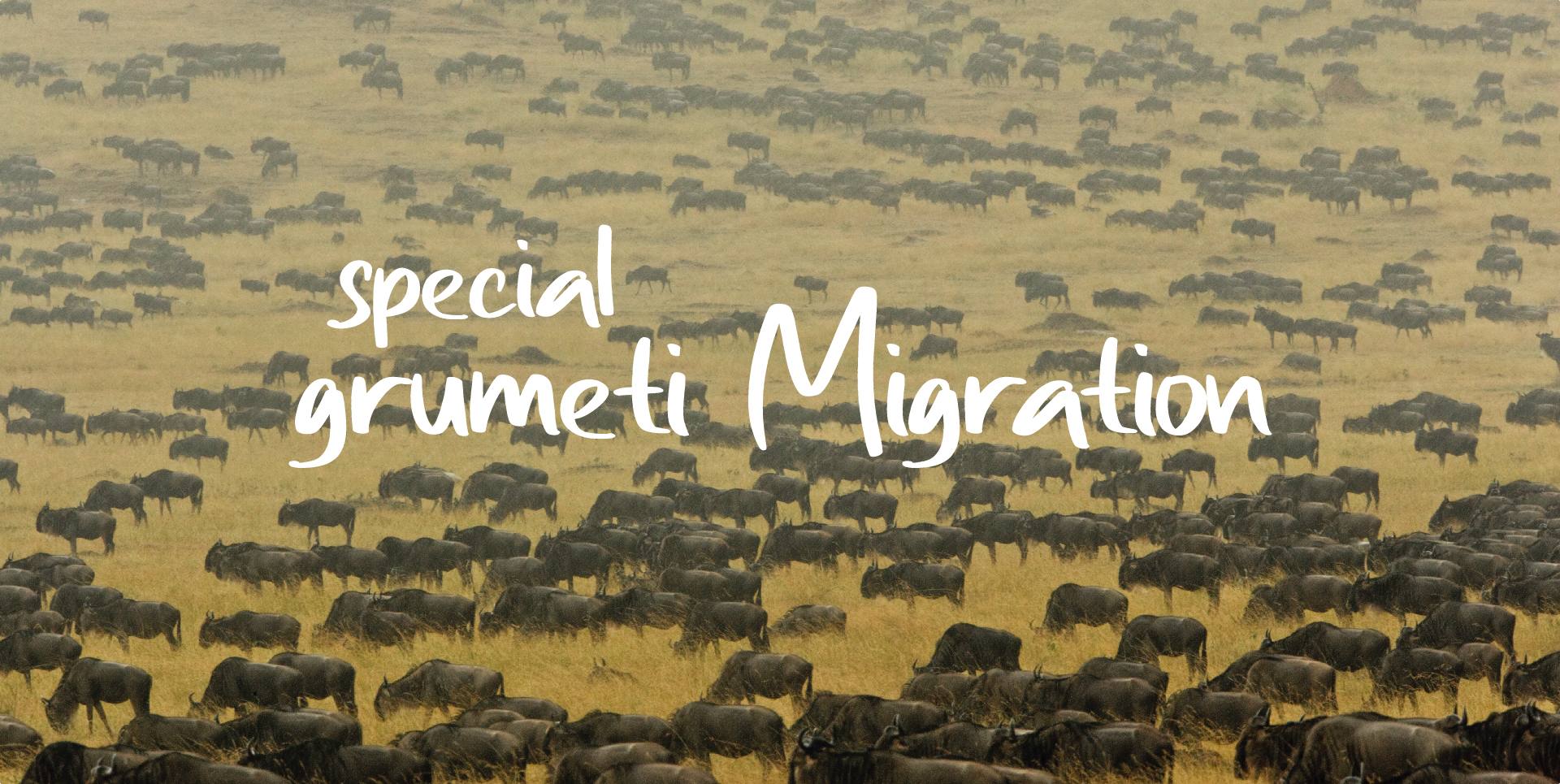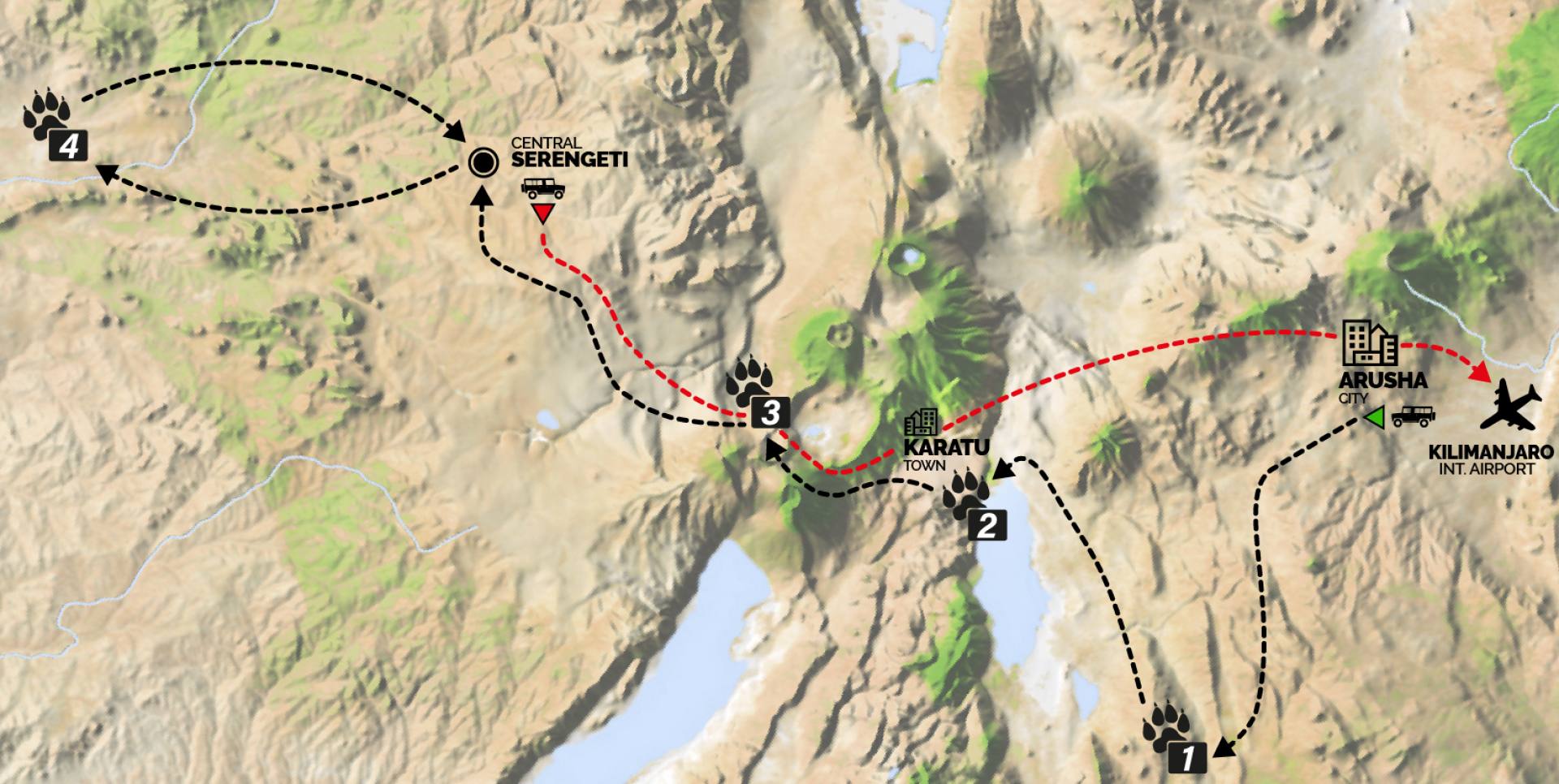The
Serengeti is considered the most famous national park in the world, the cradle of the
Great Migration, where one of the most impressive natural cycles on the planet is renewed every year: tens of thousands of ungulates move, driven by the primal instinct to survive, in constant search of new pastures. The landscape, dotted with large acacias and Kopjes (ancient rock piles), is an ideal habitat for big cats. As you move deeper into the heart of the Serengeti, you will understand why the name means, in the Maasai language, "boundless plain." Your safari will continue to explore the park until you arrive in the remote Western zone. The Western Serengeti is commonly referred to as the "Western Corridor" and consists of a 50-kilometer-wide strip of land that follows the course of the Grumeti River, starting from the Seronera area and running almost to Lake Victoria. The Western Corridor area offers unique opportunities for sightings, during the Migration between May and July. Long columns of wildebeest and zebra arrive here from the southern Serengeti to huddle on the south bank of the river and face the risky crossing of the Grumeti, infested with the many voracious Nile crocodiles. The day will end with a transfer to the Lodge/Tented Camp for dinner and overnight stay according to the chosen category.
The next day will be entirely devoted to seeking out one of the best known but also one of the fiercest natural spectacles of the animal world: river crossing by herbivores. At this time in the western part of the park the concentration of large predators is very high and, in a single day, sightings of cheetahs, leopards and herds of hyenas and lions could be counted by the dozens. In the afternoon, return to Lodge/Tented Camp for dinner and overnight stay.









